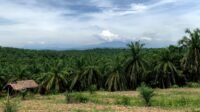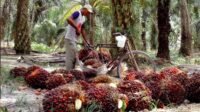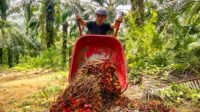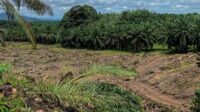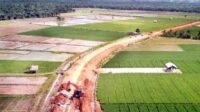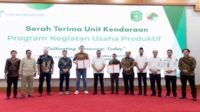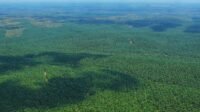PALMOILMAGAZINE, JAKARTA — The Indonesian government’s recent issuance of Presidential Regulation No. 5 of 2025, which establishes a Task Force for Forest Area Orderliness (Satgas PKH), has sparked debate. While the regulation is framed as a solution to long-standing agrarian conflicts and overlapping forest management claims, environmental watchdog WALHI warns that it may set a dangerous precedent—particularly due to the involvement of military forces.
“The use of military approaches in forest area enforcement is extremely dangerous,” said Uli Arta Siagian, National Executive of WALHI. She voiced concerns about the potential for intimidation, especially toward local communities who have long lived and farmed in forest areas that remain legally ambiguous.
According to WALHI, resolving forest tenure issues should rest with civilian authorities using legal and social mechanisms—not military or security forces. “The task force should not include the TNI (Indonesian Armed Forces). Forest enforcement must be transparent and accountable,” Uli emphasized.
Also Read: Restorative Solutions for Tesso Nilo National Park Area
She pointed to a troubling trend: while the state has often relaxed rules for large corporations, small communities continue to bear the brunt of enforcement. Uli cited past policies like Government Regulation No. 10 of 2010 and No. 104 of 2015, which, she said, effectively provided “amnesty” for palm oil companies that cleared forests before seeking legal approval.
WALHI’s criticism extends to the Omnibus Law (UU Cipta Kerja), particularly Articles 110 A and 110 B, which granted businesses a three-year grace period to settle land legality issues. Many failed to meet the 2020 deadline, yet faced little consequence. “This reflects weak law enforcement, and now Presidential Regulation No. 5 further equates community members with irresponsible corporations,” Uli stated.
The core of the problem lies in unresolved tenurial conflicts. Around 30 million hectares of land claimed as state forest overlaps with customary (adat) territories—many of which remain legally undefined. WALHI reports that more than 130,000 people in their assistance network live in areas designated as forest land, without any legal clarity over their status.
As the government moves forward with Satgas PKH, WALHI urges a return to human-centered governance. “Communities should not become collateral damage in the name of forest order,” Uli concluded. (P2)




